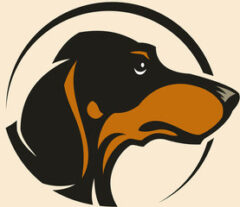
How Much Food Do You Feed A Dachshund

Are you a proud owner of a Dachshund? This lovable and energetic breed deserves the best possible care, including a well-balanced diet. But how much food should you be feeding your furry friend? In this article, we will dive into the topic of how much food you should feed a Dachshund to keep them happy and healthy.
Dachshunds are known for their long bodies and short legs, which means their nutritional needs may be different compared to other breeds. It’s important to find the right balance of nutrients to support their growth, maintain a healthy weight, and prevent any form of malnutrition.
Understanding the Nutritional Needs of a Dachshund
To ensure your Dachshund stays healthy and happy, it’s crucial to understand their nutritional needs. Like all dogs, Dachshunds require a combination of macronutrients (proteins, fats, and carbohydrates) and micronutrients (vitamins and minerals) to thrive.
Proteins are essential for muscle growth and repair, while fats provide energy and support the absorption of fat-soluble vitamins. Carbohydrates, such as grains and vegetables, supply energy and fiber. It’s important to choose high-quality dog food that provides a well-rounded mix of these nutrients.
When selecting dog food for your Dachshund, look for options specifically formulated for small breed dogs. These formulas are often designed to meet the unique needs of smaller dogs, including their higher metabolism and smaller kibble size.
Factors to Consider When Determining the Right Amount of Food for Your Dachshund
Determining the right amount of food to feed your Dachshund can be a bit of a balancing act. Several factors need to be taken into consideration to ensure you’re providing the appropriate portion sizes for your furry friend.
Age
The age of your Dachshund plays a significant role in determining their nutritional needs. Dachshund puppies require more calories and nutrients to support their rapid growth and development. As they transition into adulthood, their calorie needs decrease. Senior Dachshunds may require fewer calories due to a slower metabolism and reduced activity levels.
Weight
Maintaining a healthy weight is crucial for Dachshunds, as their long bodies put them at a higher risk of developing back and joint problems. If your Dachshund is overweight, it’s important to adjust their food intake accordingly.
Activity Level
The activity level of your Dachshund also influences their calorie needs. Dachshunds are generally an active breed, but individual activity levels can vary. If your Dachshund is highly active, they may require more calories to fuel their energy. Conversely, if they are less active, their calorie needs will be lower.
Overall Health
Certain health conditions, such as diabetes or thyroid issues, can affect your Dachshund’s metabolism and require adjustments to their food intake. If your Dachshund has any health concerns, it’s best to consult with your veterinarian for personalized feeding recommendations.
Recommended Daily Calorie Intake for Dachshunds
The recommended daily calorie intake for Dachshunds can vary based on their age, weight, activity level, and overall health. As a general guideline, adult Dachshunds typically require around 30 calories per pound of body weight per day. However, it’s important to remember that individual Dachshunds may have different needs.
For example, a 10-pound adult Dachshund would require approximately 300 calories per day. It’s crucial to divide this calorie intake into two or three meals to prevent overeating and aid digestion. Additionally, treats should be factored into the overall calorie intake to ensure your Dachshund isn’t consuming excessive calories.
Feeding Guidelines for Dachshund Puppies
Dachshund puppies have higher energy requirements compared to adult Dachshunds due to their rapid growth and development. It’s essential to provide them with a balanced diet that supports their needs.
Ideally, Dachshund puppies should be fed a puppy-specific formula until they reach 80% of their expected adult weight. Puppy formulas are formulated to meet the higher nutritional needs of growing puppies. Feed them three to four small meals a day to ensure they receive the necessary nutrients without overloading their digestive system.
Feeding Guidelines for Adult Dachshunds
Once your Dachshund reaches adulthood, their feeding routine can be adjusted. Adult Dachshunds usually do well with two meals a day, although some may prefer three smaller meals. Split their daily calorie intake evenly between these meals for optimal nutrition.
To prevent overeating and potential weight gain, it’s important to measure your Dachshund’s portion sizes. Use a kitchen scale or a measuring cup to ensure accuracy. The recommended daily calorie intake can be divided into two meals, with each meal consisting of roughly half the total calories.
Common Feeding Mistakes to Avoid
When it comes to feeding your Dachshund, there are a few common mistakes to avoid to ensure their health and well-being.
Free-feeding
Leaving food out all day for your Dachshund to graze on can lead to overeating and weight gain. It’s best to establish a regular feeding schedule and portion out their meals accordingly.
Feeding table scraps
While it can be tempting to share your meals with your furry friend, feeding them table scraps can lead to an unbalanced diet and potential health issues. Stick to a high-quality dog food formulated for Dachshunds to meet their nutritional needs.
Ignoring portion sizes
It’s crucial to measure your Dachshund’s portion sizes to prevent overfeeding or underfeeding. Use a kitchen scale or a measuring cup to ensure accuracy and adjust the amounts as needed based on their weight and activity level.
Signs of Overfeeding or Underfeeding Your Dachshund
Dachshunds are prone to obesity, so it’s important to monitor their weight and body condition regularly. Overfeeding can lead to excessive weight gain, while underfeeding can result in malnourishment and lack of energy.
Signs of overfeeding include weight gain, difficulty walking or running, lethargy, and excessive begging or food-seeking behavior. On the other hand, signs of underfeeding may include weight loss, a visibly thin body condition, decreased energy levels, and a dull coat.
Adjusting Your Dachshund’s Food Intake Based on Activity Level and Age
As mentioned earlier, your Dachshund’s activity level and age play a role in determining their calorie needs. If your Dachshund is highly active or participates in activities like agility training, they may require additional calories to fuel their energy.
Additionally, as your Dachshund ages, their metabolism may slow down, and their activity level may decrease. It’s important to adjust their food intake accordingly to prevent weight gain and support their changing needs.
Special Considerations for Dachshunds with Health Issues or Allergies
If your Dachshund has specific health issues or allergies, their dietary needs may differ from the average Dachshund. In such cases, it’s best to consult with your veterinarian to develop a specialized feeding plan that addresses their unique needs.
For example, Dachshunds with diabetes may require a diet that helps regulate blood sugar levels, while those with food allergies may need a limited ingredient diet that eliminates potential allergens.
Conclusion: Ensuring a Healthy and Balanced Diet for Your Dachshund
Feeding your Dachshund the right amount of food is crucial for their overall health and well-being. By considering factors such as age, weight, activity level, and overall health, you can determine the appropriate portion sizes to meet their specific needs.
Remember to choose high-quality dog food formulated for small breed dogs and measure out their portions to prevent overfeeding or underfeeding. Regularly monitor their weight and body condition, and make adjustments as needed based on their age and activity level.
By providing your Dachshund with a healthy and balanced diet, you can ensure they live a long, happy, and energetic life by your side. So, feed your Dachshund with love and care, and watch them thrive!
Tags:
